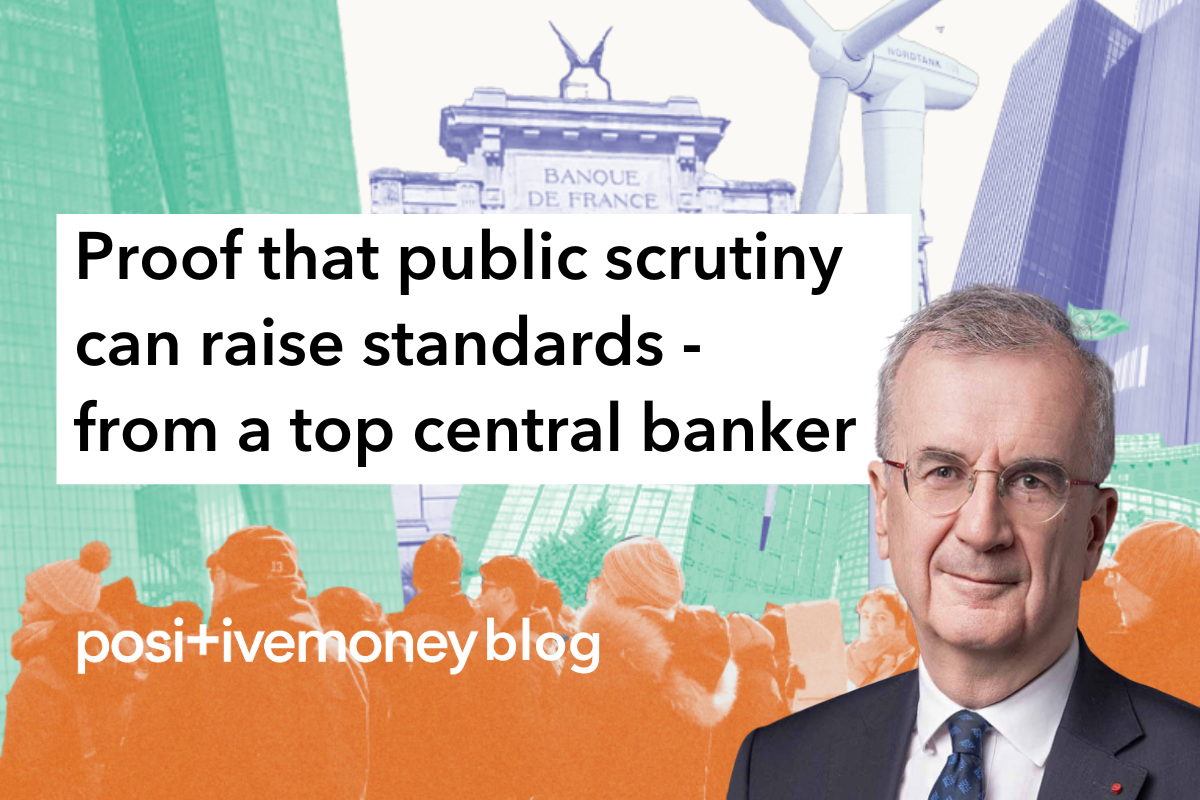
UKEU
18 February 2026
January 29, 2024
There is a quiet revolution happening in financial regulation – could it be the key to dealing with the shadow banking problem and greening the financial system all at once?
As has been recently profiled by Izabella Kaminska for POLITICO, recent banking crises and the shadow banking problem are fuelling a revolution without revolutionaries in central banking.
The revolution centres around the ‘pre-positioning’ of collateral – assets that borrowers can pledge as security in order to draw upon funds. In its most optimal form this would mean any financial institution that issues short-term ‘money like’ liabilities would need to put up enough eligible assets as collateral to cover all of these liabilities, with the central bank acting as a ‘pawnbroker for all seasons’, ready to provide funds against that collateral on pre-agreed terms. This would address a primary cause of financial crises – self-fulfilling ‘doom loops’ where surging demand for liquidity force firesales of less liquid assets, as we saw in the UK pensions crisis in 2022 and the 2023 US banking crisis.
Such proposals have been advocated for by a number of experts over the years, including former Bank of England heavyweights Mervyn King and Paul Tucker, and echo the ideas of legendary thinkers like Hyman Minsky. But momentum has increased over the past month, with the Group of 30 (an influential, global body of financiers, central bankers and academics) proposing the pre-positioning of collateral to cover all ‘runnable’ liabilities as “the most important, most feasible and lowest-cost reform” to prevent crises. Meanwhile regulators in the US have announced plans to move forward with similar proposals.
But such rules shouldn’t be applied to just banks. There is an opportunity here for an elegant solution to one of the biggest challenges in financial regulation – the ‘money problem’. At the core of the money problem is the fact that a range of financial instruments are able to function as money – safe and liquid assets that firms can rely on when they need to settle payments – but not all of them are regulated equally. The incentive to maximise profits through regulatory arbitrage drives the emergence of ‘shadow banks’, which create ‘shadow money’ – liabilities that function like money without the burden of regulation that comes with a traditional banking licence. Prominent examples of such shadow money include eurodollars, which fuelled London’s renaissance as a global financial centre in the second half of the twentieth century, as well as the money-market mutual funds (MMMFs) which were ultimately the match that lit the 2008 crisis.
The shadow banking problem frustrates attempts to regulate the banking system, as heavier restrictions on ordinary banks often simply shifts issues elsewhere. This has been observed in changes to the Basel rules for banks, where tighter capital requirements have increased shadow bank lending. By requiring not just banks but also non-banks, like insurers, pension funds and other institutional investors, to ensure any short-term ‘money-like’ liabilities such as deposits and repos are covered by appropriate collateral, we would finally have a more uniform approach to regulation, eliminating such regulatory arbitrage risks.
Under such a regime, the central bank’s discount window becomes the ‘choke point’ for disciplining the financial system. This would echo a return to the historical norm of central bank credit guidance (from which the term ‘window guidance’ derives).
Lenders would be able to source loans and create money as long as the assets they finance provide sufficient collateral to cover any deposits they create. Collateral eligibility and haircuts would essentially replace the role of capital requirements in financial regulation. As Positive Money will explore in an upcoming paper, greening the collateral framework would therefore offer an even more important route to decarbonising the financial system. There is already a strong case that assets which aren’t aligned with government climate goals should be seen as too high risk and thus made ineligible for use as collateral. The changes proposed would make this even more impactful. As with the one-for-one rule, financial institutions would not be able to support dangerous fossil fuel lending with the money we lend them.
Critics may argue that such changes could have negative impacts on the economy by affecting lenders’ ability to provide credit and take risks. This is not the case – financial firms would still be able to source and make loans (though currently banks show little interest in doing so in a way that supports the real economy). What this reform does is recognise that the financial system and broader economy fundamentally relies on states guaranteeing the short-term liabilities of financial firms (hence why big finance gets bailed out and, as we saw in the US last year, deposit protection becomes unlimited). If we the public are going to guarantee the liabilities of shareholder owned limited liability companies, we should at least have some control over the assets they back them with.
For regular updates, you can sign-up to our mailing list or follow us on Twitter. You can also donate to support our work fighting for a money and banking system that enables a fair, sustainable and democratic economy.
